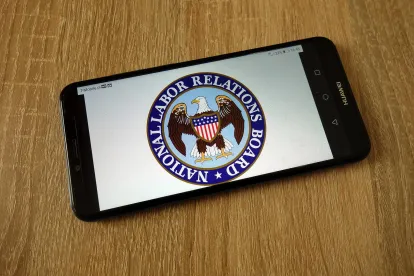- The National Labor Relations Board expanded its authority to include awarding consequential damages in unfair labor practice cases. Thryv, Inc., 372 NLRB No. 22 (Dec. 13, 2022). Monetary remedies for violations of the National Labor Relations Act have generally been limited to “make whole” relief, specifically restoring an employee’s actual lost wages caused by an employer’s or union’s unfair labor practices (ULP). The Board can now order employers that violate the Act to compensate affected employees for all direct or foreseeable damages resulting from such ULPs. The decision broadens the traditional make-whole relief available to workers and can include “out-of-pocket medical expenses, credit card debt, or other costs simply in order to make ends meet.” Aggrieved employees will still need to show evidence substantiating purported consequential damages.
- The Board reinstated its “overwhelming” community of interest standard for determining an appropriate bargaining unit in union elections. American Steel, 372 NLRB No. 23 (Dec. 14, 2022). The Board ruled that if a union petitions to represent a group of employees, and the employer asserts the unit should include additional employees, it will not find the petitioned-for unit inappropriate unless the employer shows the excluded employees share an “overwhelming” community of interest with the petitioned-for unit. Under the Trump Board, an employer merely needed to show the petitioned-for unit shared a community of interest with the employees it sought to add. The new standard provides unions with a greater advantage in elections, making it easier to carve out smaller groups — often called “micro-units” — to exclude employees inclined to vote against union representation.
- The Board’s Division of Advice issued a memorandum seeking to provide workers expanded access to company email in the post-COVID-19 workplace. Northstar Insurance Advisors, LLC, No. 14-CA-285828 (Nov. 30, 2022). The memorandum recommended issuing a complaint and use the case to overturn a Trump Board decision giving employers broad authority to limit employee communications on company information technology (IT) systems. Currently, employers can restrict the non-business use of IT resources absent proof of discrimination or that employees would “otherwise be deprived of any reasonable means of communicating with each other.” The memorandum requests the Board reinstate its previous standard that restricted employers from prohibiting employees’ use of email and other communications during non-work time absent a showing of special circumstances justifying the restrictions. The memorandum comes in the post-pandemic era, in which many employees continue to work remotely and rely on employer-owned technology to communicate with one another.
- The Board reaffirmed the cautionary actions employers must take before interviewing employees about protected concerted activity while preparing for a ULP case. Sunbelt Rentals, Inc., 372 NLRB 24 (Dec. 15, 2022). The standard stems from Johnnie’s Poultry, 146 NLRB 770 (1964), enforcement denied, 344 F.2d 617 (8th Cir. 1965), wherein the Board required employers take certain steps prior to questioning employees in ULP cases, specifically obtaining voluntary participation from the employee, explaining the purpose of the questioning, and assuring no reprisal will occur. The questioning also cannot be coercive. While the Board acknowledged that some courts declined to apply this approach and instead applied a totality-of-the-circumstances test, the Board reasoned that its standard balances allowing effective employer preparation for Board hearings with protecting employees from coercion or retaliation.
- Congress passed a new spending bill that includes a $25 million increase to the Board’s budget. Both the Board and unions have pushed for a budget increase in recent years, with the Board warning of possible furloughs without more funds to keep up with operations. The budget increase addresses expanded organizing activity in the past two years corresponding with decreased staffing. Some business groups, including the U.S. Chamber of Commerce, opposed the bill, citing decreased representation petitions and ULP complaints and an overall decline in case numbers over the last 20 years. The Board’s total budget now will exceed $299 million.





 />i
/>i
